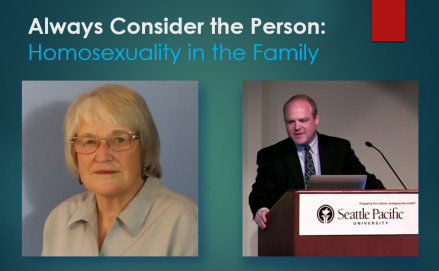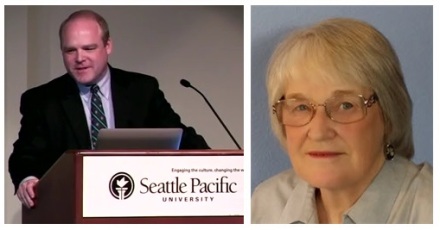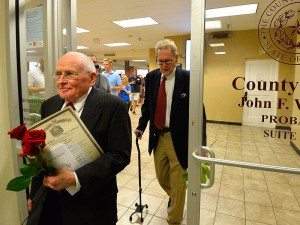This is a transcript of my presentation with my mother, Beverley Belgau, at the World Meeting of Families in Philadelphia, in conjunction with Pope Francis’s first pastoral visit to the United States. The World Meeting of Families is a global Catholic event, like World Youth Day. The first World Meeting of Families was called together by Pope St. John Paul II in 1994 to celebrate the International Year of the Family. It has grown into the largest gathering of families in the world, and this year’s meeting in Philadelphia beat all previous attendance records.
This was also the first time in the history of the World Meeting that an openly gay—and celibate—Catholic was invited to speak about his experiences in the Church and in his family.
Because of a room scheduling snafu, we started late (the room was filled to overflowing and hundreds of people were reportedly turned away). To make up, we cut some material on the fly. This reflects the original transcript, not the presentation as delivered. Because this talk highlights a lot of points we have made at Spiritual Friendship over the years, I’ve included links to other posts, if you want to learn more.
After the formal presentation, we answered audience questions for over two hours; even then, we only left because the Convention Center staff said we had to leave; there were still dozens of people in the room listening, and people in line waiting to ask questions. This speaks to just how important it is for the Church to take more time to talk about how families and parishes can respond to their lesbian and gay members with Christ-like love.
Given the length of the presentation, I have added numbered paragraphs to help locate material within the text.
Continue reading








You must be logged in to post a comment.